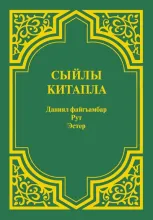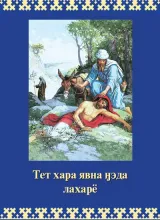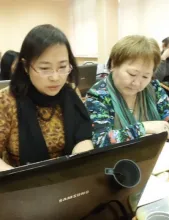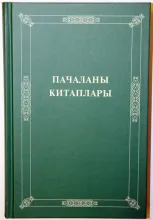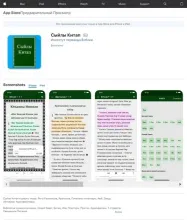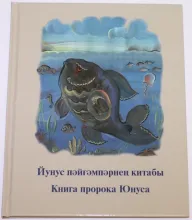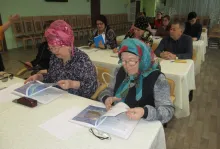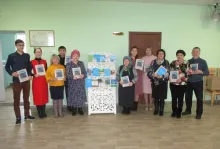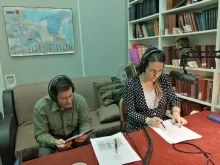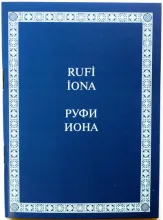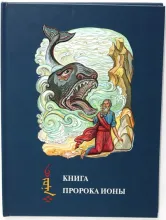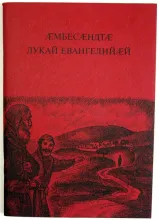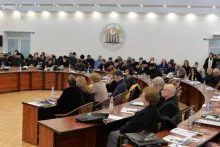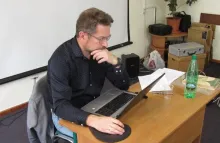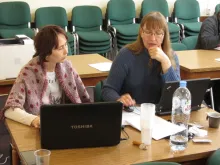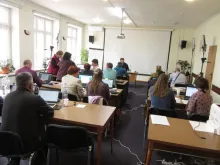news-270420
IBT is continuing to publish online editions of our new translations even as we wait for printing-houses to open up once the covid-19 quarantine ends. The latest of these editions is the Balkar version of the Old Testament books of Ruth, Esther and Daniel.
The Turkic-language Balkars constitute about 10% of the population of Kabardino-Balkaria in the North Caucasus area of the Russian Federation. Together with the closely related Karachay people, there are about 300,000 speakers of this language in Russia.
news-120420
Speakers of the Nenets language are already familiar with the Institute for Bible Translation's prior publications, such as Stories About Jesus (2003, 2011), the Gospel of Luke (2004), the Gospel of Mark (2010), the Gospel of John (2014), and the Gospel of Matthew (2018). The newest addition to this list is IBT’s illustrated publication of Gospel Parables.
Despite the coronavirus quarantine, the Nenets do not have to wait for the printing houses to resume their work and for this new book to be delivered to their cities. Why? Because Gospel Parables is being made available online from the very beginning. It can already be downloaded as a PDF file from IBT's electronic publications page. In the near future the audio recording of the book will also be made available...
news-170320
The Institute for Bible Translation has recently published Bible Stories in the Altai language. Earlier publications in this language include the 1910 edition of the Four Gospels (reprinted by IBT in 1975); the Gospel of Mark (1996); Jesus, Friend of Children (1997); the Gospel of Luke and Acts (1999); the Children's Bible (2002); the New Testament (2003); and the New Testament (2nd edition, bilingual, 2017).
In order to help Altai readers access Bible Stories, the Institute has also produced an audio recording of the text, which in the near future will be available for download in the audio section of the IBT website. One can already find the PDF version of the book in the electronic publications section. An Android application with this illustrated book, as well as the audio recording and a parallel Russian text, is also being developed.
news-0503220
IBT has recently published 1-2 Samuel and 1-2 Kings as a single edition in the Kumyk language of Dagestan. Kumyk is the largest Turkic language of the N. Caucasus, with more than 500,000 Kumyks living in Russia (according to the 2010 census).
The Kumyk translation team is continuing to work on the rest of the Old Testament, with current work in progress on several of the Minor Prophets. The next publication in the Kumyk project is expected to be the Pentateuch in 2021.
news-2601220
The Institute for Bible Translation has translated and published the first book of the Bible ever produced in the Siberian Tatar language, the book of Jonah from the Old Testament. According to the Ethnologue, Siberian Tatar is an endangered language, spoken by approximately 100,000 people. It is widespread in the central Siberian regions of Omsk, Tyumen, Novosibirsk, Kemerovo, Kurgan and Sverdlovsk.
news-201219
The book of Ruth in the Gagauz language was recorded by IBT staff members at IBT’s Moscow office on December 18. The reading was performed by Tatyana Kyrboba-Marin. The Gagauz book of Ruth was published by IBT in 2017 together with the book of Jonah, and now this audio recording is about to appear on IBT's website. The book of Genesis is being prepared for publication, with its audio recording also in the plans. Google Play now has the Gagauz Children's Bible app available for download. In the future, IBT plans to produce a smartphone app that will provide access to all of IBT’s translated Scripture portions in Gagauz.
news-111219
In October 2019, Archbishop Roman presented an award from the Orthodox diocese of Yakutia to Dr. David J. Clark (in absentia) for his many years of service as the translation consultant for the Yakut New Testament, Psalms, and Proverbs. The award — the II Degree Medal of the Holy Martyr Yevgeniy Zernov — has now reached England, where David resides, and he has responded with typical humility, saying...
news-201119
The Institute for Bible Translation continues to publish Old Testament books in the Kalmyk language. It was decided that the book of the Prophet Jonah would appear as a stand-alone illustrated publication. Since the vast majority of Kalmyks are bilingual, it was thought best to provide the Russian Synodal text in parallel with the Kalmyk translation.
news-191119
The Institute for Bible Translation has published a collection of Gospel Parables in the Digor dialect of the Ossetic language. This is the 12th publication in the series, which began in 2007 with the publication of these parables in the Agul language, and was followed in 2015-2019 by editions in Bezhta, Tatar, Rutul, Tsakhur, Dargi, Dungan, Kumyk, Nogai, Kabardian, and Even.
news-181019
On October 9-17, the Institute for Bible Translation held a workshop on Minor Prophets Translation Issues. It was attended by translation teams from eleven language groups (Adyghe, Avar, Balkar, Erzya, Kabardian, Kumyk, Kyrgyz, Mari, Tabasaran, Tajik, and Yakut). The discussion was headed by IBT consultant Andrei Desnitsky and by Yevgeniy Shved, the exegetical advisor in several of IBT's translation projects. The workshop focused on the text and translation issues of three minor prophets (Zephaniah, Joel, Haggai).

